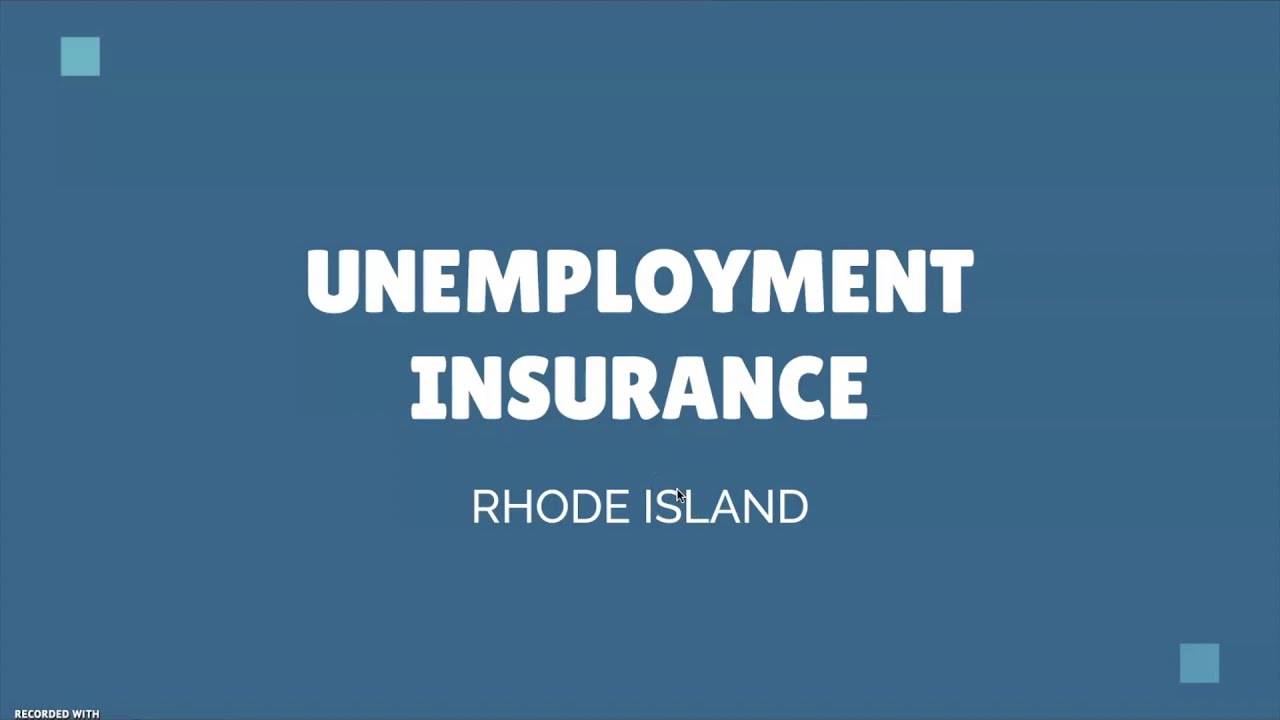Introduction to Unemployment Benefits in Rhode Island
Unemployment benefits in Rhode Island provide temporary financial assistance to individuals who have lost their jobs due to circumstances beyond their control. These benefits help unemployed workers meet their basic needs until they are able to secure new employment. The Rhode Island Department of Labor and Training (DLT) administers the state’s Unemployment Insurance Program, ensuring that eligible individuals receive the support they need during their period of unemployment.
Rhode Island’s Unemployment Insurance Program
Rhode Island’s Unemployment Insurance Program is funded by employers who pay unemployment insurance taxes. The program aims to provide a safety net for workers who find themselves unemployed due to layoffs, business closures, or other similar situations. The DLT manages the program and determines the eligibility criteria for individuals seeking unemployment benefits in the state.
Determining Eligibility for Unemployment Benefits
To be eligible for unemployment benefits in Rhode Island, individuals must meet several requirements. These requirements include citizenship or residency, minimum income and work history criteria, availability and capability to work, and reasons for job separation. It is important to understand these requirements to ensure that individuals meet the necessary criteria before applying for benefits.
Citizenship and Residency Requirements
To qualify for unemployment benefits in Rhode Island, individuals must be either U.S. citizens or authorized to work in the United States. They must also be residents of Rhode Island and actively seeking employment within the state. Proof of citizenship or work authorization is required during the application process.
Minimum Income and Work History Criteria
Rhode Island sets specific income and work history criteria to determine eligibility for unemployment benefits. Applicants must have earned a minimum amount of wages during their base period, which is the one-year period leading up to their unemployment. They must also have worked for a certain duration, typically at least 20 weeks, and earned a minimum amount of wages during that period. These criteria ensure that individuals have an established work history and have contributed to the state’s unemployment insurance program.
Understanding the Base Period for Benefits
The base period is an essential component in determining eligibility for unemployment benefits. In Rhode Island, the base period is the first four of the last five completed calendar quarters before the individual’s unemployment. The wages earned during this period are used to calculate the potential benefit amount. Understanding the base period is crucial when applying for unemployment benefits as it directly affects the amount an individual may receive.
Satisfying the Weekly Certification Process
To continue receiving unemployment benefits, individuals must satisfy the weekly certification process. This entails reporting any earnings from part-time work, temporary jobs, or self-employment during the previous week. Additionally, individuals must provide information about their job search activities, such as the number of job applications submitted and any interviews attended. Failure to complete the weekly certification process accurately and on time may result in the suspension or denial of benefits.
Reasons for Unemployment and Job Separation
Rhode Island considers the reasons for unemployment and job separation when determining eligibility for benefits. Typically, individuals must have become unemployed through no fault of their own, such as being laid off due to lack of work or downsizing. Voluntary resignations or terminations for cause may disqualify individuals from receiving unemployment benefits. Each case is assessed individually, taking into account the circumstances surrounding job separation.
Availability and Capability to Work
Eligibility for unemployment benefits also requires individuals to be available and capable of working. This means that they are physically and mentally able to perform suitable work and are actively seeking employment. Individuals must be willing to accept suitable job offers and participate in job search activities as required by the DLT. Failure to meet these requirements may result in the denial of unemployment benefits.
Unemployment Benefits and Part-Time Employment
Rhode Island allows individuals to receive partial unemployment benefits while working part-time. The amount of benefits received is based on a formula that considers the individual’s earnings and the maximum benefit amount they are eligible for. This provision aims to provide support to individuals who are working reduced hours but have not regained full employment. It is important to accurately report part-time earnings to ensure that individuals receive the appropriate benefit amount.
Reporting Earnings and Job Search Activities
While receiving unemployment benefits, individuals must report any earnings from part-time work or self-employment. Failure to report these earnings can result in overpayment and potential penalties. Additionally, individuals must actively search for suitable employment and keep a record of their job search activities. The DLT may request this information at any time to verify eligibility for continued benefits.
Appeals Process for Denied Unemployment Claims
If an individual’s unemployment claim is denied, they have the right to appeal the decision. The appeals process allows individuals to present additional evidence and arguments to support their claim for unemployment benefits. It is essential to follow the specific instructions provided by the DLT to ensure that the appeal is filed within the designated timeframe. Appealing a denied claim provides individuals with an opportunity to have their case reviewed by an impartial authority and potentially receive the benefits they are entitled to.
In conclusion, understanding the requirements for eligibility is crucial when applying for unemployment benefits in Rhode Island. Meeting the necessary criteria such as citizenship or residency, minimum income and work history, availability and capability to work, and accurately reporting earnings and job search activities are essential for a successful application. Additionally, individuals should be aware of the appeals process in case their claim is initially denied. By understanding and fulfilling these requirements, individuals can navigate the unemployment benefits system in Rhode Island and receive the financial assistance they need during periods of unemployment.





